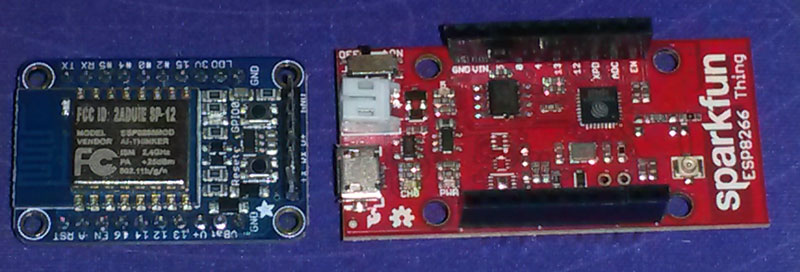TOAST
„The On Always Sensor Type“ because it needs a constant power supply, is always on and can report constantly.
The TOAST is a micro controller board based on the popular ESP8266 programmed with the Arduino IDE.
Finally I managed to redesign TOAST for easy use and put TOAST on github for easier collaboration, error reporting and discussion. Please look at the Wiki for TOAST documentation and examples:
At the moment I have mainly 2 boards in use:

The name isn’t so bad after all, because it actually reflects what it is. A basis where you can throw any kind of toppings (sensors) on. And that is making the taste and gives you endless varieties.
What does the base TOAST give you?
- WIFI connection to your home network
You can predefine up to 3 WIFI SSID’s that the TOAST may connect to. It connects to the first WLAN router in the list it can reach. If the connection is lost it will revolve through the list until it can contact a router again. - MQTT connection to a gateway on your network
You can predefine up to 3 MQTT gateways. It will use the first gateway from the list that it can connect to. If connection is lost it will revolve through the list until a working MQTT gateway is found again. - Report status change on any digital port to MQTT
This can be used to report the status of e.g. smoke detectors, motion detectors or water detectors directly to the MQTT bus - Set parameters or switches via MQTT bus
You can use messages on the MQTT bus to configure the TOAST. E.g. queues to use for port A, interval to report the status, … - All parameters will be stored in EEPROM
- All sent and received messages on the MQTT bus will be in JSON format
That way a lot of home automation software can use the data from the sensor - Easy to use in your own sketch
TOAST is a library to the Arduino IDE see how to install.
An easy example
What is it not!
- A sensor that can be running on batteries for very long.
Sleep mode is not implemented here, because WiFi overhead is way too much.
So have a look at: